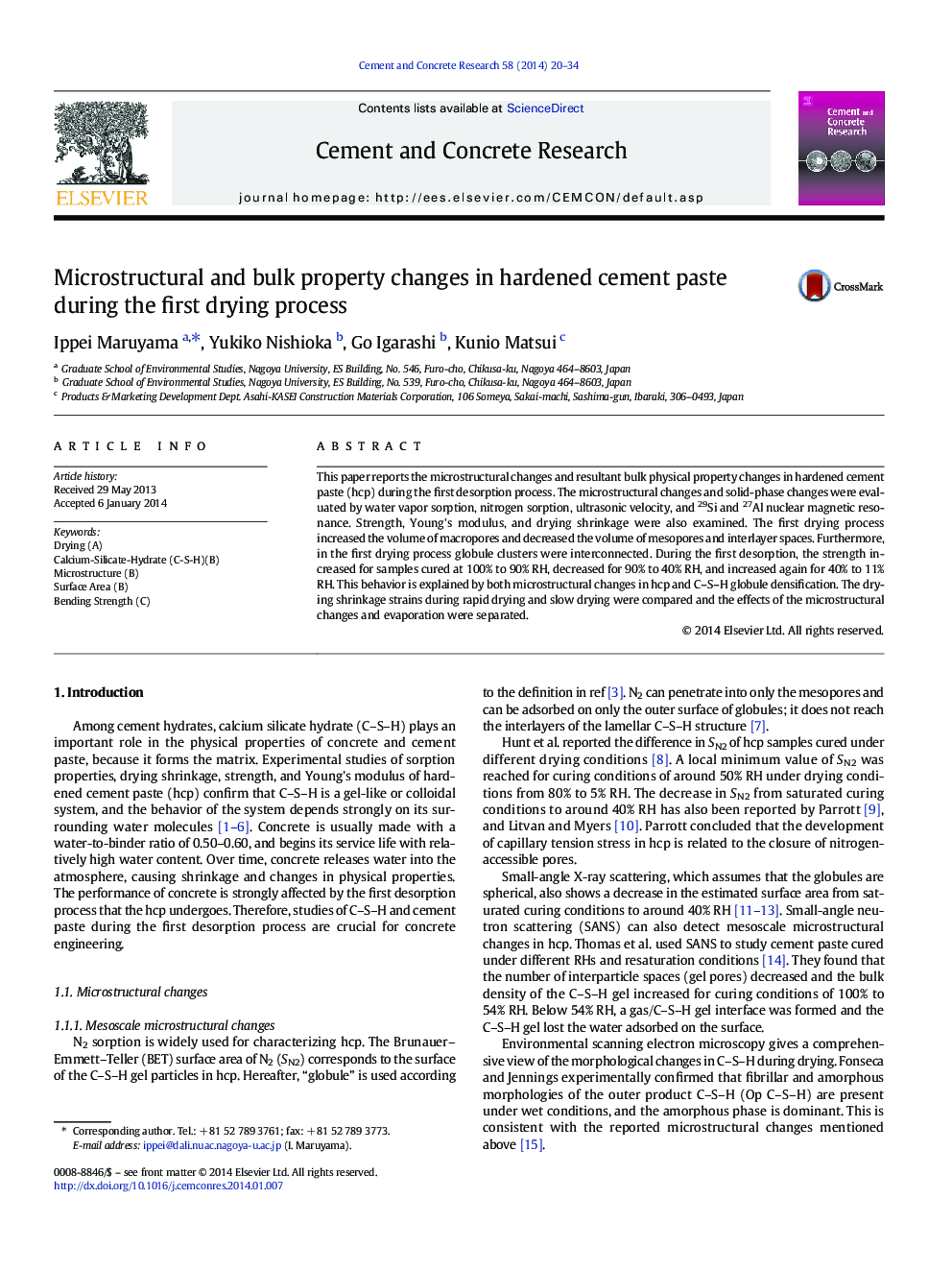| Article ID | Journal | Published Year | Pages | File Type |
|---|---|---|---|---|
| 7885557 | Cement and Concrete Research | 2014 | 15 Pages |
Abstract
This paper reports the microstructural changes and resultant bulk physical property changes in hardened cement paste (hcp) during the first desorption process. The microstructural changes and solid-phase changes were evaluated by water vapor sorption, nitrogen sorption, ultrasonic velocity, and 29Si and 27Al nuclear magnetic resonance. Strength, Young's modulus, and drying shrinkage were also examined. The first drying process increased the volume of macropores and decreased the volume of mesopores and interlayer spaces. Furthermore, in the first drying process globule clusters were interconnected. During the first desorption, the strength increased for samples cured at 100% to 90% RH, decreased for 90% to 40% RH, and increased again for 40% to 11% RH. This behavior is explained by both microstructural changes in hcp and C-S-H globule densification. The drying shrinkage strains during rapid drying and slow drying were compared and the effects of the microstructural changes and evaporation were separated.
Related Topics
Physical Sciences and Engineering
Engineering
Industrial and Manufacturing Engineering
Authors
Ippei Maruyama, Yukiko Nishioka, Go Igarashi, Kunio Matsui,
